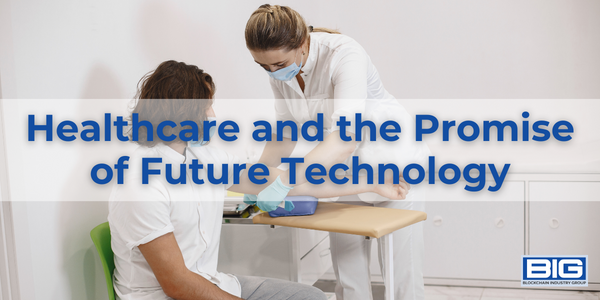
The adoption of future technologies has the potential to drive significant progress and change in the healthcare industry, improving the accessibility, convenience, and effectiveness of care. These technologies could enable the delivery of personalized and proactive care, as well as the automation of certain tasks and the analysis of large amounts of data. The use of telemedicine, remote monitoring, and robotics could also drive significant change, enabling the delivery of care remotely and improving the safety and efficiency of certain procedures. As these technologies continue to advance and evolve, they have the potential to drive even more transformative change in the healthcare industry, driving progress towards a better future.
Telemedicine
The adoption of telemedicine technology could significantly improve the accessibility and convenience of healthcare by enabling patients to receive care remotely, either through video or phone consultations or through the use of remote monitoring systems. This could drive significant change in the healthcare industry by making healthcare more accessible and convenient for patients, as well as reducing the burden on traditional healthcare facilities.
For example, the use of telemedicine could enable patients to receive care from the comfort of their own homes, reducing the need for them to travel to a healthcare facility. Telemedicine could also enable patients to receive care from a wider range of healthcare providers, regardless of their location, improving access to specialized care. Additionally, the use of telemedicine could enable healthcare providers to monitor the health of patients remotely, enabling them to intervene in a timely manner and prevent the need for more serious interventions.
Personalized Medicine
The adoption of technologies such as artificial intelligence and genomics could enable the development of personalized treatment plans that are tailored to the specific needs and characteristics of individual patients. This could drive significant change in the healthcare industry by enabling the delivery of more effective and efficient care that is tailored to the unique needs of each patient.
For example, the use of artificial intelligence and genomics could enable healthcare providers to analyze the genetic and clinical data of individual patients to identify the most appropriate treatment options for their specific needs. This could enable the delivery of more targeted and effective treatments that are tailored to the unique characteristics of each patient, improving patient outcomes and reducing the risk of adverse effects. Additionally, the use of artificial intelligence and genomics could enable the identification of new opportunities for the development of personalized therapies and treatments, driving progress and innovation in the healthcare industry.
Remote Monitoring
The adoption of technologies such as wearable devices and remote monitoring systems could enable patients to track and manage their health remotely, enabling healthcare providers to monitor and intervene in a timely manner. This could drive significant change in the healthcare industry by enabling the delivery of more proactive and preventative care that is focused on improving patient outcomes.
For example, the use of wearable devices and remote monitoring systems could enable patients to track and monitor their vital signs, such as heart rate and blood pressure, as well as their physical activity and sleep patterns. This data could be transmitted to healthcare providers in real-time, enabling them to intervene in a timely manner and prevent the need for more serious interventions. The use of remote monitoring could also enable patients to manage their health conditions more effectively, reducing the need for hospitalizations and other costly interventions.
Robotics
The adoption of robotics technology could significantly change the way that certain healthcare procedures are performed by enabling the performance of complex and delicate tasks with greater precision and speed. This could drive significant change in the healthcare industry by improving the safety and effectiveness of certain procedures, as well as reducing the need for human labor.
For example, the use of robotics technology could enable the performance of complex and delicate surgical procedures with greater accuracy and precision, reducing the risk of complications and improving patient outcomes. Robotics technology could also enable the performance of tasks that are physically demanding or repetitive, such as the handling of hazardous materials or the delivery of medications, reducing the need for human labor and improving the efficiency of certain procedures.
10 Canadian Future Technology Companies to Watch
—
10 Ways Medical Techs Will ‘Invade’ Our Bodies
—
13 Risks Posed by Future Technologies
Artificial intelligence
The adoption of artificial intelligence technology could significantly change the way that healthcare is delivered and accessed by enabling the automation of certain tasks and the analysis of large amounts of data. This could drive significant change in the healthcare industry by enabling the delivery of more efficient and effective care, as well as the identification of new opportunities for innovation and improvement.
For example, the use of artificial intelligence could enable the automation of tasks such as the analysis of medical images, freeing up healthcare providers to focus on more complex and high-value tasks. Artificial intelligence could also enable the analysis of large amounts of data to identify patterns and trends that could inform the development of more effective treatments and interventions. Additionally, the use of artificial intelligence could enable the identification of new opportunities for innovation and improvement, driving progress and change in the healthcare industry.



